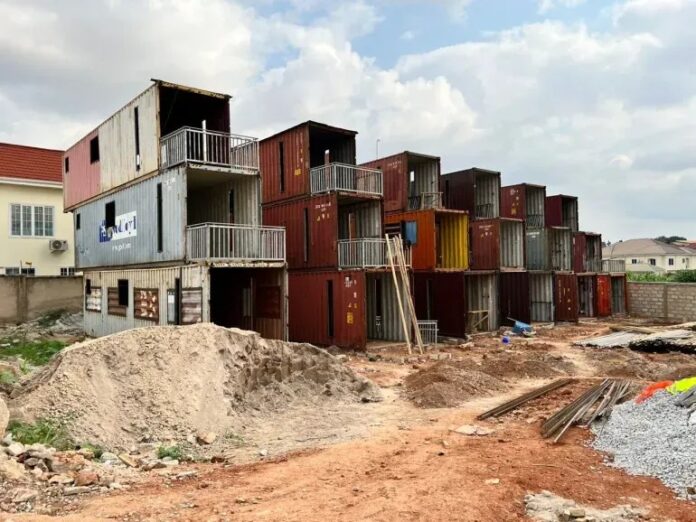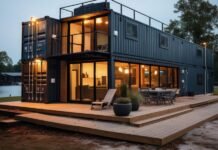Accra, Ghana—In a country where housing shortages are reaching a critical level, Eric Kwaku Gyimah is leading a transformative initiative that repurposes shipping containers into affordable, eco-friendly homes. This innovative approach addresses pressing housing needs while promoting sustainability, representing a significant move toward solving Ghana’s ongoing housing crisis.
Understanding Ghana’s Housing Crisis
According to the Ghana Statistical Service, approximately six million of Ghana’s 33 million citizens urgently require housing. The situation is particularly dire in urban areas like Accra, where inadequate housing supply has led to the proliferation of overcrowded slums. The United Nations reports that from 2017 to 2020, the population living in such conditions skyrocketed from 5.5 million to 8.8 million. This alarming trend is a direct result of rapid urbanization and economic challenges, highlighting the urgency for effective housing solutions.
Gyimah’s Vision: More Than Just a Business
At a bustling construction site on the outskirts of Accra, Gyimah, donned in work boots and a high-visibility vest, oversees the dramatic transformation of discarded shipping containers into fashionable living spaces. His company, IWoodz Creation, does more than construct homes—it builds stores, offices, and cafes using these repurposed containers. Gyimah describes his initiative as more than a simple business endeavor; he views it as a movement aimed at addressing the worsening housing deficit.
“I am passionate about providing affordable housing options that are both stylish and sustainable,” he explains. “Every container we repurpose is a step toward alleviating the housing challenges faced by many Ghanaians.”
The Benefits of Container Homes
Gyimah’s shipping container homes range from $7,000 to $35,000, offering a cost-effective alternative to traditional construction methods, which can easily exceed $70,000 for a basic two-bedroom house. The construction process is not only affordable but also significantly faster than conventional building methods. Additionally, these homes are designed with natural ventilation systems that enhance comfort while reducing the need for energy-intensive cooling devices.
The environmental impact of this initiative is also noteworthy. By repurposing shipping containers—often discarded and left to rust—Gyimah’s approach contributes to urban renewal and emphasizes the importance of environmental conservation in modern housing solutions.
The Need for Comprehensive Urban Planning
While the potential of shipping container homes is promising, some urban planning experts caution against viewing them as a panacea for Ghana’s housing issues. Experts like Abrahim Sowah-Dei, an Accra-based town planner, argue that these homes must be integrated into broader urban planning and community development strategies to ensure long-term sustainability and community well-being.
Housing activist Mohammed Awal stresses that container homes must adhere to high standards of safety and dignity. He raises concerns that marginalized communities might be relegated to what might be perceived as substandard living solutions if these homes are not adequately designed and maintained.
A Responsive Initiative amid Crisis
The recent calamity caused by the rupture of the Akosombo dam in October 2023 serves as a stark reminder of the urgent need for innovative housing solutions. The flood displaced over 40,000 people, emphasizing the necessity for safe and reliable shelter in times of disaster. In response, Gyimah is contemplating expanding his enterprise to create mobile housing units for disaster victims, intending to provide not just shelter but also a sense of resilience and hope for those impacted.
Looking Ahead: The Role of Innovation in Housing
As Ghana grapples with its severe housing crisis, the work of Eric Kwaku Gyimah and IWoodz Creation stands as a beacon of hope. By transforming shipping containers into affordable, sustainable housing solutions, Gyimah demonstrates how innovative approaches can address complex social challenges in urban environments.
While critics urge for a comprehensive strategy that includes long-term urban planning and community involvement, Gyimah’s initiative represents the potential for significant change. As the world watches, Accra could become a model for other cities facing similar housing crises, proving that with vision and creativity, even the most difficult problems might find their solutions in unexpected places.














